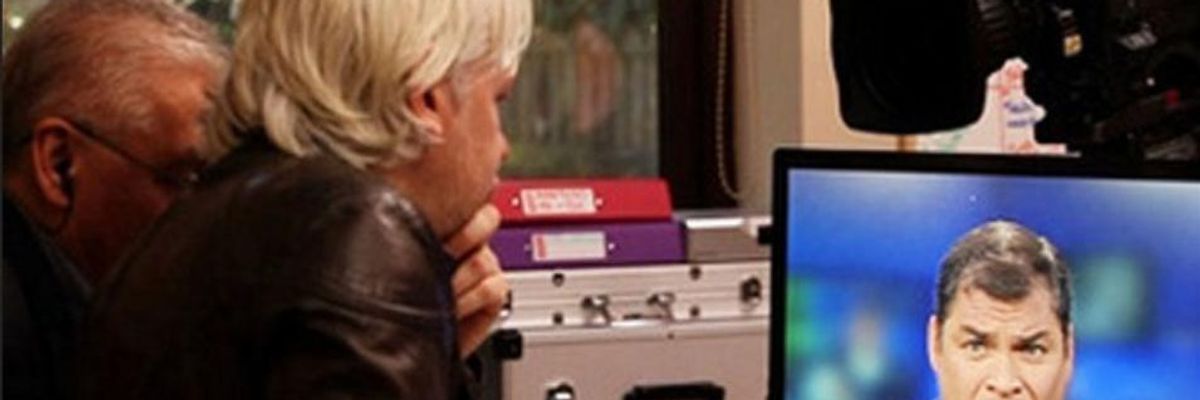The former president of Ecuador, Rafael Correa, on Thursday morning slammed his right-wing successor, President Lenin Moreno, as a the nation's "greatest traitor" for stripping Julian Assange of his protected asylum status and invited U.K. police to enter the Ecuadorian embassy in London to arrest the Wikileaks publisher.
"The greatest traitor in Ecuadorian and Latin American history, Lenin Moreno," Correa stated in a tweet, "allowed the British police to enter our embassy in London to arrest Assange. Moreno is a corrupt man, but what he has done is a crime that humanity will never forget."
While Moreno explained in a video posted online that his decision to withdraw Assange's diplomatic asylum was over repeated violations of "international conventions and protocols of coexistence," Correa responded with utter contempt.
"This will never be forgotten by the whole of humanity," Correa declared. "One of the most heinous acts, the fruit of servility, vileness and vengeance."
"From now on and across the world," Correa added in a subsequent tweet, "scoundrel and betrayal can be summarized in two words: Lenin Moreno."
It was Correa in 2012 who first granted Assange political asylum over fears that the journalist was being targeted by some of the powerful enemies he had made--including the United States and the U.K.--by publishing highly sensitive documents and other materials, including evidence of war crimes.
When announcing the decision at the time, Ecuador's foreign minister, Ricardo Patino, explained that the decision was made specifically because Assange could face "political persecution" or be extradited to the U.S. where he could potentially be put to death if tried and convicted under the arcane Espionage Act.
"The government of Ecuador, faithful to its tradition of protecting those who seek refuge in its territory or in its diplomatic missions, has decided to grant diplomatic asylum to Julian Assange," Patino declared in 2012.
Since the news of Assange's arrest broke early Thursday morning, human rights defenders and press freedom advocates have condemned the joint move of the Ecuadorian and U.K. governments.

